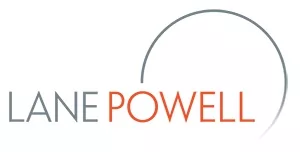When I'm not helping clients think about their spirits brands, frustrations with distributors or plans for global hooch domination, I spend a decent amount of time working with early stage and smaller companies in other industries. And since Seattle is reasonably tech-heavy at this stage (Amazon, Facebook, Google and Microsoft all have office space within about a 1-mile radius of my desk), a lot of those clients have aspirations of hockey-stick growth curves with the potential for an early exit via IPO or strategic acquisition).
These folks make for fun – if occasionally zany – clients. I enjoy working with them, and also with my colleagues who focus their practices exclusively in the startup arena (like this guy). But for those of us who are old enough to remember the dot-com bust, before which every startup had at least one foosball table in its lobby, the idea of putting some adult supervision into the mix doesn't seem like such a bad thing.
Some of the best startups get that kind of adult supervision by participating in an accelerator. If you're not familiar with the concept, you can think of an accelerator as something like a cross between a boot camp and a cotillion. By joining the accelerator, entrepreneurs can get access to (frequently) world-class mentoring and experience. They also get some meaningful discipline – that's where the boot camp kicks in – that helps them to refine their business model, flesh out their technology, and do whatever else might be necessary to make a go of their idea. Pretty cool.
And the cotillion bit? Well, it wouldn't be a cotillion without a dance card – and for startups that means capital investment. The accelerator will typically make a small investment in the startup – taking a slice of equity. But participation in the accelerator will also likely introduce the entrepreneur to other potential investors – so by the time the accelerator program is complete the entrepreneur has probably made meaningful contacts with any number of additional potential funding sources and strategic partners. Also pretty cool.
Of course, we can't really let tech companies have all the fun, right?
Today we received news that Distill Ventures – an accelerator set up by Diageo for the express purpose of helping to launch new and promising spirits ventures – has graduated its first spirits brand from the program. And to extend the cotillion metaphor to a point arguably in bad taste in modern society, by "graduated" I mean something like "married off."
To be specific, Diageo (Distill's sole shareholder) has acquired Belsazar – a German vermouth brand for an undisclosed sum. Distill invested in Belsazar in 2014. In the intervening few years, the two have worked together to improve the business case for the brand, expand its distribution and generally help smooth the otherwise rocky road of entrepreneurship (spirits or otherwise).
Following the acquisition, the founders of Belsazar intend to stay on and run the brand – albeit with significantly more firepower at their disposal. Will this marriage work? Only time will tell. But one thing is reasonably certain – it would be extremely difficult for a German vermouth brand to achieve the kind of worldwide distribution – 5 years after the brand's launch – that will soon be within Belsazar's reach.
Originally published in Hooch Law, March 2018
The content of this article is intended to provide a general guide to the subject matter. Specialist advice should be sought about your specific circumstances.


